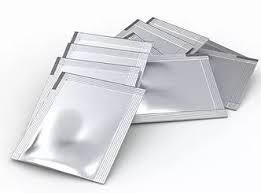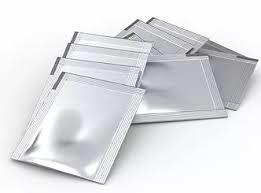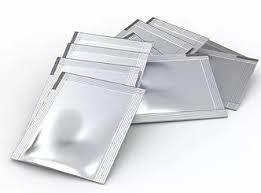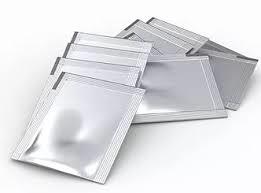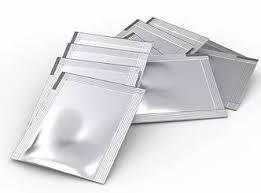
L-Glutamine, L-Arginine, L-Alanine, L-Lysine + Combination Sachet
5 INR/Piece
Product Details:
- Purity 99%
- Formulations Type General Drugs
- Formulations Form Powder
- Gender/Age Group Adult
- Storage Instructions Dry Place
- Click to view more
X
L-Glutamine, L-Arginine, L-Alanine, L-Lysine + Combination Sachet Price And Quantity
- 300 Box
- 5 INR/Piece
L-Glutamine, L-Arginine, L-Alanine, L-Lysine + Combination Sachet Product Specifications
- General Drugs
- Powder
- Dry Place
- 99%
- Adult
L-Glutamine, L-Arginine, L-Alanine, L-Lysine + Combination Sachet Trade Information
- Cash in Advance (CID) Cash Advance (CA)
- 300 Box Per Month
- 1 Months
- Yes
- Sample costs shipping and taxes has to be paid by the buyer
- Western Europe Australia Middle East Central America Eastern Europe South America Asia North America Africa
- All India
Product Description
The formulation includes the essential ingredients important for immunity strength and rejuvenation of organ functions. Mainly the ingredients which serve the daily function of the human body, which are Vitamins, amino acids and minerals that shield the body against various diseases.
Amino acids will provide benefit by feeding into and impact on the regulation of key metabolic pathways in immune cells and the cellular oxidative stress response. They are needed to produce a sufficient number of neutrophils entering into a strategic defense system against hepatitis B and C, chronic fatigue syndrome and any immunodeficiency states.
The vitamins and minerals but of utmost importance is overall good nutrition because the body's ability to resist infection and disease is diminished by long-term deficiency in essential vitamins and minerals.
Indications:
- Supports Healthy Immune Response and Recovery
- Maintaining stable microbial ecosystem in GIT
- Support a Healthy Respiratory System
- Reduces severity of the common cold
- Helps to repair the damaged tissue
- Promotes healthy circulation
- For proper functioning of heart, kidneys and liver
- Supports Collagen Synthesis
- Promotes detoxification process
- Improves impaired thyroid function
- Improves ability to use insulin
About Composition:
Amino Acids:
L-Glutamine:
L-glutamine is probably the most widely recognized immuno-nutrient since it can be used as an oxidizable fuel, a substrate for nucleotide synthesis, a modulator of intermediary metabolism of amino acids. Glutamine is used by white blood cells and contributes to normal immune system function.
L-glutamine is essential for maintaining intestinal function and aiding in the immune response. After glutamine is synthesized in skeletal muscle it is released into the bloodstream and transported to the kidney, liver and small intestine and cells of the immune system where it plays another vital role.
Your small intestines require the most Glutamine in your body, and your immune system also needs Glutamine because Glutamine levels deplete during workouts, bodybuilders are more susceptible to illnesses - this is why L-Glutamine supplementation is so important, not necessarily to gain more muscle, but for the 'maintenance' effects of L-Glutamine.
L-Arginine:
Arginine is considered a "conditionally essential" amino acid, which means that under certain circumstances, such as those just mentioned, your body cannot synthesize adequate amounts of it.
L-arginine plays a critical role in the function of the immune system, as arginine deficiency in macrophages leads to a defect in nitric oxide production. Consequently, this results in decreased macrophage elimination of pathogens. Additionally, myeloid suppressor cells (MSCs) have been shown to exert regulatory effects on activated T-cells by utilizing arginine metabolism in various different pathways. Decreased levels of arginine have also been observed to interfere with proper B-cell maturation and IgM production, all of which ultimately impair the adaptive immune response.
L-Alanine:
L-alanine is a non-essential amino acid and plays a crucial role as a building block of important proteins. Alanine stimulates lymphocyte production and may help people who have immune suppression. It builds up the immune system, producing immunoglobulin and antibodies.
L-Lysine:
L-lysine plays a particularly important role in the immune system. It is involved in the development of antibodies and has important antiviral properties.
Lysine is important for proper growth and it plays an essential role in the production of carnitine. Carnitine is a nutrient responsible for converting fatty acids into energy and helping lower cholesterol. Lysine also appears to help the body absorb calcium, and it plays an important role in the formation of collagen, a substance important for bones and connective tissues including skin, tendons, and cartilage.
Minerals:
Calcium:
The bone mineral, Calcium is considered one of the most abundant minerals found in the body. Calcium is an important mineral component because it helps body cells absorb Vitamin C and other nutrients more efficiently. Calcium is the very first step in repairing damaged tissue.
The first trigger in this process is a flash of calcium which spreads like a wave back from the wound edge through gap junctions that connect all the cells.
This flash of calcium signal goes on to activate an enzyme known as DUOX that synthesizes hydrogen peroxide, which, in turn, attracts the first white blood cells to the wound. This white blood cell invasion, which is initiated during our inflammatory responses, is needed to kill off invading microbes and stop the onset of septicemia following tissue damage.
Phosphorus:
Phosphorus is an essential mineral involved in hundreds of cellular activities every single day that the skeletal structure and vital organs the brain, heart, kidneys and liver, for example all rely on to keep the body functioning properly.
Phosphorus may be considered as part of an integrated approach to support immune functions and maintain a stable microbial ecosystem in the GIT, thereby providing a barrier against potential pathogens.
Phosphorus is key because the mineral is needed for the growth, maintenance and repair of all tissues and cells starting from infancy. Phosphorus is also important for proper brain function, including the ability to concentrate, learn, problem-solving and remember information.
Magnesium:
Magnesium helps to control hundreds of chemical reactions in the body. It also helps regulate blood pressure, strengthen muscles and bones, keeps the immune system strong and supports cardiac and brain function.
Magnesium also has a strong relation with the immune system in both non specific and specific immune responses and magnesium deficit has been shown to be related to impaired cellular and humoral immune function.
It works as a co-factor for immunoglobulin synthesis, immune cell adherence, antibody-dependent cytolysis, IgM lymphocyte binding, macrophage response to lymphokines and T helperB cell adherence. Poor immune response is correlated with impaired thyroid function; a deficiency in iodine can greatly affect the immune system because low levels of iodine lead to problems with the thyroid gland and lower body temperature.
Zinc:
Zinc is known to play a central role in the immune system, and zinc-deficient persons experience increased susceptibility to a variety of pathogens. Zinc is crucial for normal development and function of cells mediating nonspecific immunity such as neutrophils and natural killer cells. Zinc deficiency also affects development of acquired immunity by preventing both the outgrowth and certain functions of T lymphocytes such as activation, Th1 cytokine production, and B lymphocyte.
Although research has highlighted the importance of zinc for the immune system, because the mineral has many complex roles in the body. The infection fighting function is not well defined until now but it helps in strengthening the immunity to fight against infection.
The ability of zinc to function as an anti-oxidant and stabilize membranes suggests that it has a role in the prevention of free radical-induced injury during inflammatory processes. The role of zinc in modulating oxidative stress has recently been recognized. Oxidative stress is an important contributing factor in several chronic human diseases, such as atherosclerosis and related vascular diseases, mutagenesis and cancer, neurodegeneration, immunologic disorders, and the aging process.
Manganese:
Manganese is necessary for normal brain activity. It acts as a catalyst for certain enzymes to work in the body. It is also crucial in helping enzymes prevent free radicals from sparking heart diseases. Apart from maintaining nerve health and lubricating joints, manganese also makes use of protein in the diet. It is important for the formation of sex hormones. The mineral is also believed to help balance blood sugar levels.
Manganese can help strengthen immunity in people diagnosed with depression. Depressed people are usually prone to infections.
Copper:
Copper plays a vital role in the immune system as a killer of foreign microbes. Neutropenia (abnormally low numbers of white blood cells called neutrophils) is a clinical sign of copper deficiency in humans. The white blood cells of the human immune system surround invading bacteria upon activation before boosting their levels of copper ions in order to break down the threatening intruders.
This is the reason that insufficient copper levels weaken the human immune system as well as increase susceptibility to sickness and infection.
Some of the recent research showed that interleukin 2 is reduced in copper deficiency and is likely the mechanism by which T cell proliferation is reduced.
Selenium:
Selenium is the most important mineral for the immune system and the liver to function at their optimal level; indeed without adequate selenium in your body, your immune system and liver will remain vulnerable to attack.
It is a potent immune system booster, as well as the activating factor for a hormone produced by the thyroid gland. Selenium is a known antioxidant which may protect against heart attack, stroke, macular degeneration, cold sores, as well as many other diseases and effects of aging. Selenium (Se) is a potent nutritional antioxidant that carries out biological effects through its incorporation into selenoproteins. The selenoproteins play important role in regulating reactive oxygen species (ROS) and redox status in nearly all tissues.
People who don't get enough selenium in their diet are more likely to come down with frequent infections, and it takes them much longer to recover from infections. This is because it is much easier for viruses to replicate inside your body if there is an inadequate selenium level inside your cells.
Chromium:
Chromium is of significant importance in altering the immune response by immunostimulatory or immunosuppressive processes as shown by its effects on T and B lymphocytes, macrophages, cytokine production and the immune response that may induce hypersensitivity reactions.
However, the studies showed that the chromium reduced serum cortisol levels. Glucocorticods, which include cortisol, are known to suppress the immune system.
The chromium improves immune system, the blood levels of stress hormones decreased, improving their ability to use insulin.
Vitamins:
Vitamin C:
Vitamin C, also known as ascorbic acid. One of the most important functions of vitamin C is to support and energize the body's immune system. Immune cells have active vitamin C transporter molecules embedded in their membranes that actively pump the vitamin into the cells when more vitamin C is required.
When you're suffering from infections, the concentration of vitamin C in the plasma drops rapidly. And increasing concentration of vitamin c with supplements is proved to be beneficial for improving the immune system.
The human body does not produce vitamin C. It must be obtained from outside-the-body sources. While vitamin C helps maintain tissue and speed wound healing, an overlooked strength is its impact on boosting immune function.
Niacinamide:
Vitamin B3, also called niacin and niacinamide, is an important water-soluble vitamin that strengthen your innate immune system.
Niacin, also known as vitamin B3, stimulates the defense mechanism of the body to produce antibodies that are capable of destroying bacteria resistant to antibiotics, or so called "superbugs". The mutation of certain genes leads to increased sensitivity to bacterial infection, and the biggest problem is the mutation of bacteria, so they are increasingly becoming resistant to all known antibiotics, and even those specifically drafted for their destruction. Studies have shown that some dangerous infections occur as a result of lack of certain proteins in neutrophils, but that high doses of vitamin B3 increase the secretion of this protein in the cells of the immune system.
Vitamin E:
Vitamin E is the most important chain-breaking, lipid-soluble antioxidant present in body tissues of all cells and is considered the first line of defense against lipid peroxidation and it is important for normal function of the immune cells. . Supplementation of vitamin E significantly enhances both cell mediated and humoral immune functions in humans, especially in the elderly. Vitamin E is a potent antioxidant that helps prevent cell damage from free radicals.
The facts about vitamin E show that it is an incredible antioxidant that does a great job in fighting off infections.
Vitamin B6:
It is a critical nutrient, especially as we age, for strong immune system defense. Vitamin B6 (besides boosting your immune system) include being able to prevent heart disease, hormonal imbalances, pregnancy problems, and certain brain disorders. This vitamin also helps our bodies metabolize minerals properly.
Vitamin B6 deficiency affects both humoral and cell-mediated immune responses. It inhibits the production of pro-inflammatory cytokines.
There is evidence to suggest that adequate vitamin B6 intake is important for optimal immune system function.
Vitamin A:
Vitamin A has been well known for its protective roles against infections. An important part of the protective roles might be through its ability to enhance antibody responses, especially IgA antibody responses in mucosal tissues IgA is secreted into the gut lining and provides protection against harmful pathogens. It thus helps maintain a healthy flora.
Vitamin A is required for innate and adaptive immunity and is an immune enhancer that potentiates the antibody response, maintains and restores the integrity and function of all mucosal surfaces. Vitamin A integrates into both pro-inflammatory and anti-inflammatory immune responses in the gastrointestinal tract.
Vitamin D3:
Vitamin D 'triggers and arms' the immune system". It said that researchers believe that vitamin D plays a key role in boosting the immune system. Vitamin D deficiency are more susceptible to infection, vitamin D is involved in the activation of the T cells of the immune system.
Sufficient levels of Vitamin D reduce your risk of infectious disease by strengthening your innate immune system. Vitamin D turns on key peptides in your immune system that trigger a strong anti-microbial response, allowing you to quickly and effectively fight off invaders before they can develop into a full-blown infection.
Side Effects:
The product is POSSIBLY SAFE for most adults. If you are allergic to any ingredient in amino acid-based nutritional supplement.
There is no disadvantage associated with the product if taken under the recommended usage.
Special Precautions & Warnings: (For Pregnancy And Breast Feeding Mothers):
Pregnant and lactating mothers should not take any single supplement in higher than normal doses unless recommended by a health care provider for special conditions. The combination should only be used in pregnancy and lactation if benefits outweigh the risk.
Storage:
Store in a cool, dry and dark place. Keep protected from direct sunlight.
Tell us about your requirement

Price:
Quantity
Select Unit
- 50
- 100
- 200
- 250
- 500
- 1000+
Additional detail
Mobile number
Email


